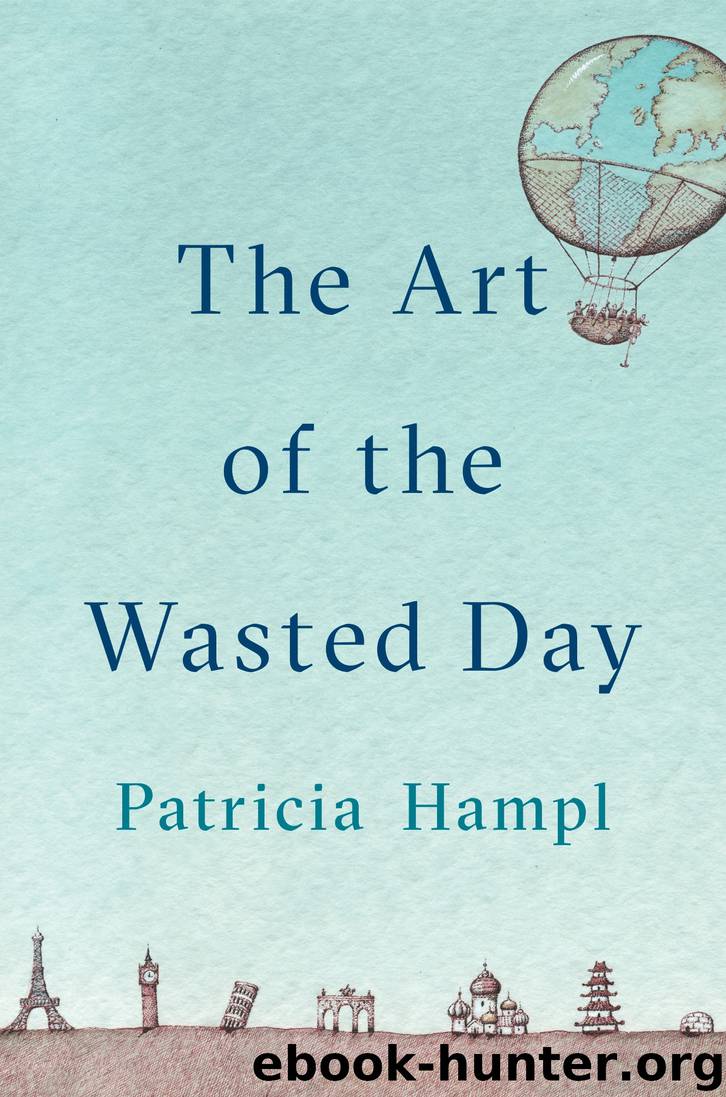The Art of the Wasted Day by Patricia Hampl

Author:Patricia Hampl
Language: eng
Format: epub
Publisher: Penguin Publishing Group
Published: 2018-04-17T04:00:00+00:00
* * *
—
On the drive to Znojmo, Anna and I had spent an afternoon in Brno at the Mendel museum housed in the old Augustinian abbey where he’d lived, now part of Masaryk University. I tried to follow the intricacies of his meticulous notations mounted on the displays, his careful transcription of peapod family life, the spidery lines connecting small circles, dividing, combining, reconfiguring change and chance over vegetal generations.
But what I took away was not a sudden understanding of the science, any more than I had comprehended genetics from the unit in high school biology (and girls—Gregor Mendel was a monk, a contemplative). What I saw in his charting was clear evidence not of genetic theory, but of patience, tenderness. A gentle soul, a gardener. I wandered off to the gift shop and bought a coffee mug (pea green, naturally) with the museum’s peapod logo, and sat on a stone bench in the abbey-museum courtyard. Out with the notebook, reminding myself once again about my grandmother’s kitchen garden, her perennial border of heavy-headed maroon and white peonies, my grandfather behind his toolshed, training green beans up a rattan lattice, tying off the tendrils with cotton twine. My florist father hoodwinking Easter lilies and poinsettias to bloom in perfect time for the holidays. Care and tending, the pacific life of gardening, the Edenic assignment that predated laboring “by the sweat of your brow.”
Mendel read Darwin in a German translation of Origin of Species. It appears, however, that Darwin did not know Mendel’s work. He came heartbreakingly close to reading Mendel’s paper on his pea experiments (published in an obscure Moravian agricultural journal). Mendel’s paper is mentioned in an omnibus review of recent work of the time. Darwin made notes on his copy of this review, curiously skipping over the mention of Mendel’s paper without a marginal note. It’s possible, had Darwin read this modest document with its careful study of pea plant patterns, that genetics would have been a nineteenth-century discovery—and considered the capstone of Darwin’s remarkable career. Perhaps.
But, as geneticists now marvel, it was not until 1900 that Mendel’s work was “discovered,” finally seen for what it is—the key to cellular life and the mysterious workings of heredity. This was sixteen years after Mendel had died in relative obscurity, known as the abbot of his Augustinian congregation, not as the father of genetics—a word not even coined in his lifetime.
As a monk, Mendel passed his days within the liturgy of Hours, wedded to the seasonal world in spiraling patterns of great resonance, prayers belonging not to any creed or dogma, not even to Christianity. These ancient texts of the Hebrew Psalms structure the Western monastic day, season, year as they have since the desert fathers.
Mendel’s was a way of life, then, organized by poetry. A life never more than a few hours distant from the Psalms, poems that form the genetic code of Western lyricism, its grief and fury, its exultation. For the West, the Psalms are the enduring
Download
This site does not store any files on its server. We only index and link to content provided by other sites. Please contact the content providers to delete copyright contents if any and email us, we'll remove relevant links or contents immediately.
Still Foolin’ ’Em by Billy Crystal(36361)
We're Going to Need More Wine by Gabrielle Union(19050)
Plagued by Fire by Paul Hendrickson(17416)
Pimp by Iceberg Slim(14515)
Molly's Game by Molly Bloom(14146)
Becoming by Michelle Obama(10030)
When Breath Becomes Air by Paul Kalanithi(8449)
Educated by Tara Westover(8056)
The Girl Without a Voice by Casey Watson(7890)
The Incest Diary by Anonymous(7701)
Note to Self by Connor Franta(7672)
How to Be a Bawse: A Guide to Conquering Life by Lilly Singh(7490)
The Space Between by Michelle L. Teichman(6943)
What Does This Button Do? by Bruce Dickinson(6208)
Imperfect by Sanjay Manjrekar(5880)
Permanent Record by Edward Snowden(5850)
A Year in the Merde by Stephen Clarke(5439)
Shoe Dog by Phil Knight(5271)
Promise Me, Dad by Joe Biden(5155)
